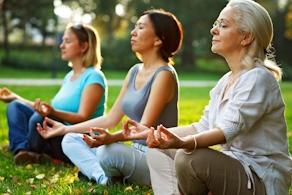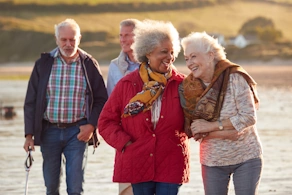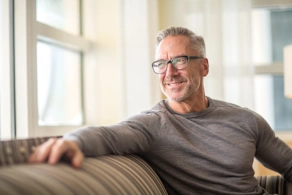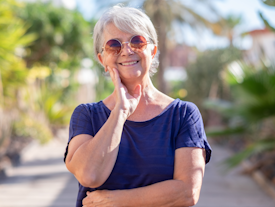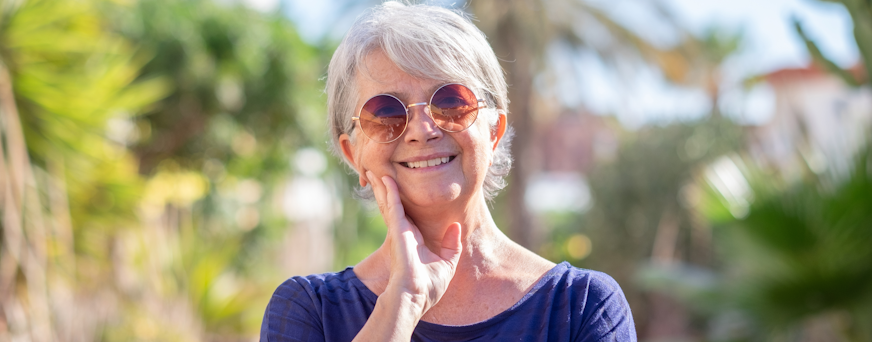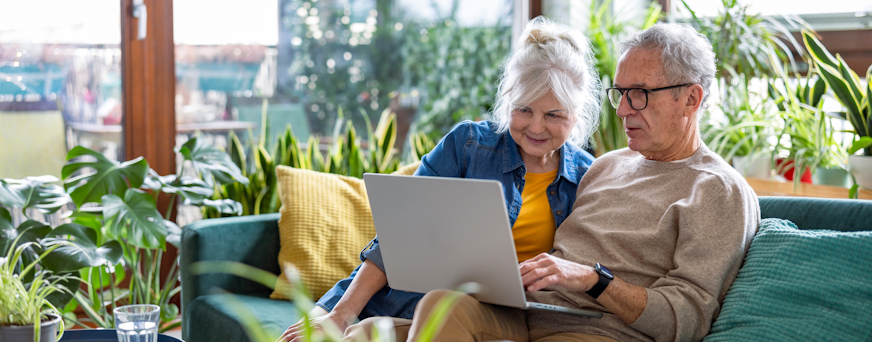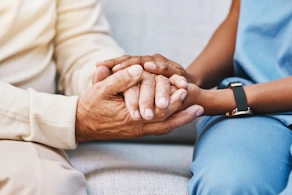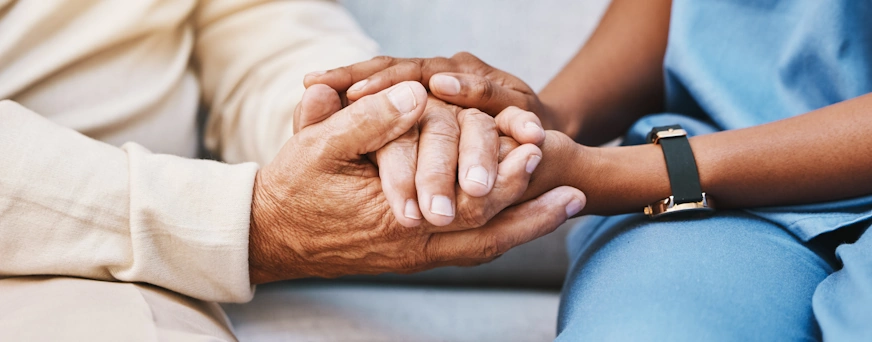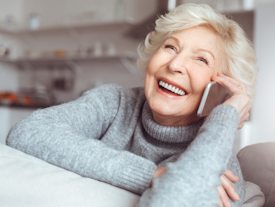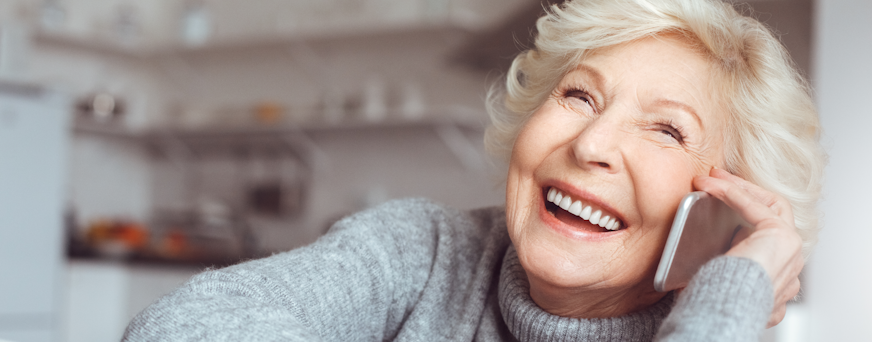What To Include On A Senior Safety Checklist
Our Key Takeaway
A senior safety checklist should include fall prevention (grab bars, good lighting), fire and smoke safety, medication management, regular health checks, home security, financial fraud protection, emergency planning, and secure kitchen practices.
People may have to change their living environment and schedule as they get older to ensure they are safe. Indeed, for providing a secure and comfortable atmosphere, a senior safety checklist is going to be useful.
This list is used as a basis to assess and mitigate possible risks to foster independence and reduce anxiety. It runs from the basics of fall prevention to medication management, which is critical in the well-being of the elderly.
Adopting these recommendations, you or your loved one will be able to maintain an active lifestyle and feel a sense of protection.

Life Assure Product Quiz
Take our 30 second quiz and discover which Life Assure medical alert device is the right fit for you or a loved ones.
Life Assure Product Quiz
Take our 30 second quiz and discover which Life Assure medical alert device is the right fit for you or a loved ones.
What Should be in the Senior Safety Checklist

Here are some of the major requirements that should be present in the senior safety checklist:
1. Fall Prevention
Common accidents among elderly people are falls and these cause a lot of hospitalizations. The following checklist section should help to answer this question about hazards in your home. Search for mats, textured, tiles and carpets, different floor levels, and obstacles on the floor.
There must be sufficient lighting in the house including the stairways. There should be grab bars by the showers and another handrail along corridors.
Check shoes continuously for signs of good tread and the overall fit of the shoe. If you follow these measures you can decrease the chances of falling and go on living an active life as you wish.
2. Fire and Smoke Safety
It is important to realize that having a fire safety plan for senior safety is also helpful in terms of the psychological aspects of other benefits. Based on the NFPA, the smoke detector should be tested every month, and the battery replaced annually.
Most importantly, it is required that this policy be implemented and rehearsed from time to time. Choose two specific egress routes from every space and an exterior gathering place.
3. Medication Management
To stay healthy, one has to ensure that they correctly take their medication. Many authors discuss the fact that medicines should be kept in a cool and dry place, and children and pets cannot have access to them.
There are several strategies for ensuring that these medications are taken correctly, for example by sorting them into a pillbox or medication dispenser. If having trouble, consider using a medication reminder app or speaking with your pharmacist about possibilities.
It is also vital to discuss the medications you are taking with the doctor to avoid having medications that cause side effects or react badly with other drugs.
4. Prioritize Regular Health Checks
The notion that prevention is better than cure could not be truer when it comes to health issues. According to the Centers for Disease Control and Prevention (CDC), it is advisable to make a routine visit to your healthcare provider.
They enable the identification and management of risk factors for possible diseases. It is also important to monitor such factors as blood pressure, medication schedules, and other important details.
5. Secure Your Home
It is crucial to feel comfortable in one’s own home; The National Institute of Justice (NIJ) noted that strategies to prevent break-ins should be put in place. It is essential to check if all doors and windows have working locks; it may be appropriate to add deadbolts on these entry points.
Do not leave valuable items unguarded and do not disclose your details to random strangers. For additional security, one may consider having a home security system or a monitored medical alert service.
6. Financial Protection
Sadly, financial scams are common among seniors regularly. The Federal Trade Commission (FTC) presents information and advice on how to recognize and avoid those scams.
Avoid getting contacted through calls, emails, letters, and those who claim to give quick cash and sweepstakes. Never disclose any details on the privacy of your finances over the telephone or through the Internet without being well informed.
Credit monitoring services and frequent check-ups of bank statements can also be taken to be a precaution. Talking over the financial future with an expert and considering such measures as the Durable Power of Attorney can also be helpful in case of any adverse situations.
7. Be Prepared for Emergencies
It is good to be prepared for the hardships of life therefore arranging for situations that may come along. The Canadians Red Cross suggests that evacuees pack a kit that embraces some basic needs such as food, water, a first aid kit, and a radio with batteries.
Emergency contact list: come up with ways on how you will talk to your loved ones in case of a disaster. Dial the most essential contacts in your phone such as the emergency department, your loved ones, and physicians.
It can also be useful to know where your shut-off valves for water and gas sit in case of an emergency or a leak. In this way, you will secure yourself much better and be ready for such events that can occur in life.
8. Master Kitchen Safety
The kitchen can present hazards for seniors. The National Fire Protection Association or NFPA offers guidance where people are encouraged to remain vigilant when using the stove top and oven.
Do not bring objects prone to catching fire like towels, or potholders near the sources of heat. In the stovetop, fan control should be considered in addition to refraining from leaving food unattended while cooking.
9. Embracing Technology for Connection
Technology literacy can help improve senior safety and overall quality of life. The Association of Mature Canadians Citizens AARP advises how technology can assist in maintaining social engagement, seeking medical information, and even ordering food to be delivered.
It may prove invaluable to learn how video calls work, about medication applications, as well as about safe usage of the internet. Simple technical courses could also be taken or else one may seek help from friends or family members.
Seniors can become tech-savvy and socially connected, thereby negating the need to move to an elderly home, thus enhancing quality of life among seniors.
Conclusion
As we grow old, the prevention of these causes is necessary to ensure our safety and comfort as we age. The senior safety checklist covers areas such as fall risk, fire risks, medications, health, security, money, emergencies, stove/kitchen, bathroom, and technology.





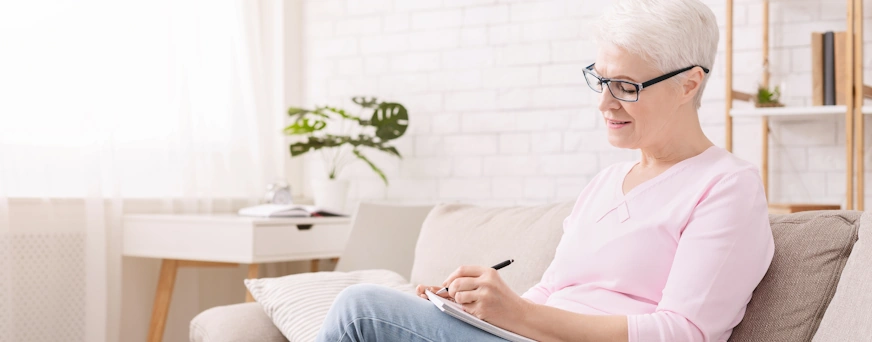






 Get Help With The Push Of
A Button
Get Help With The Push Of
A Button

